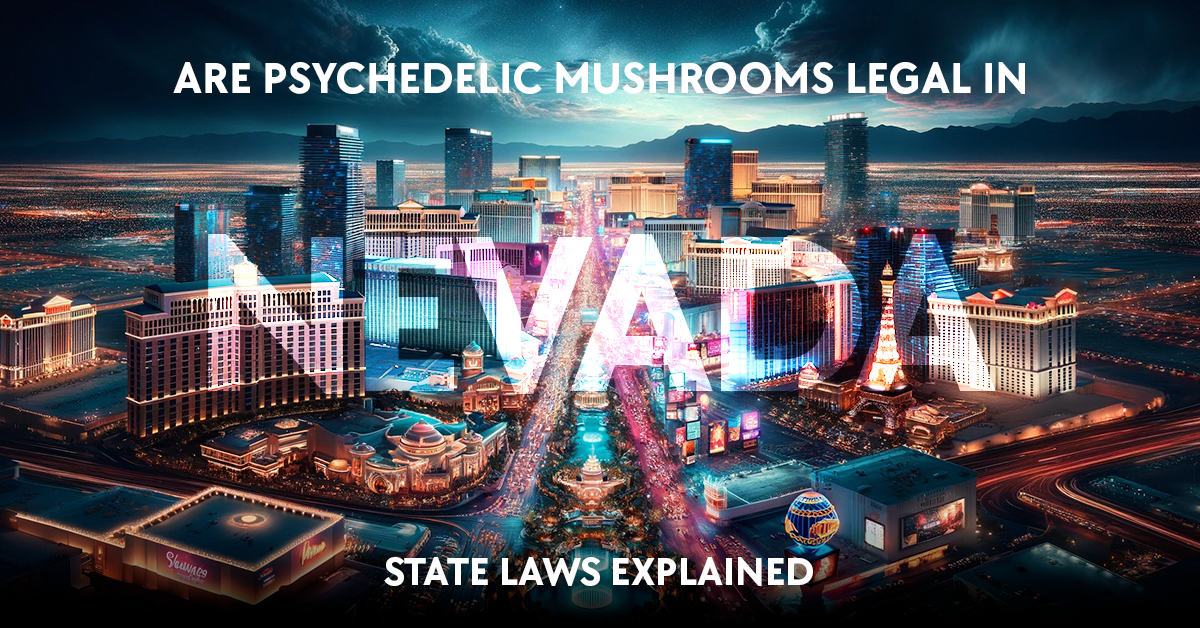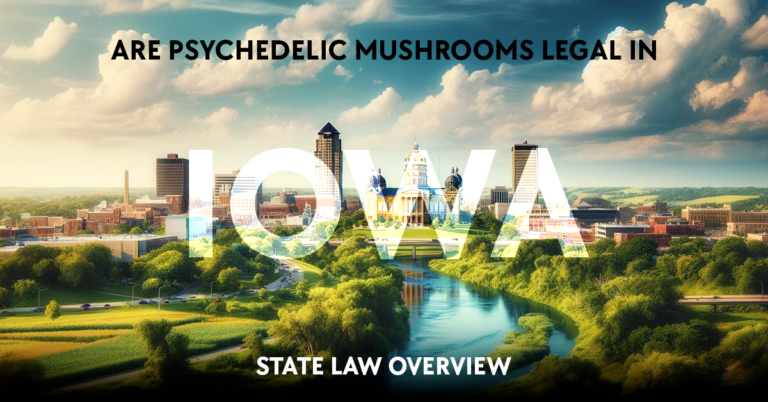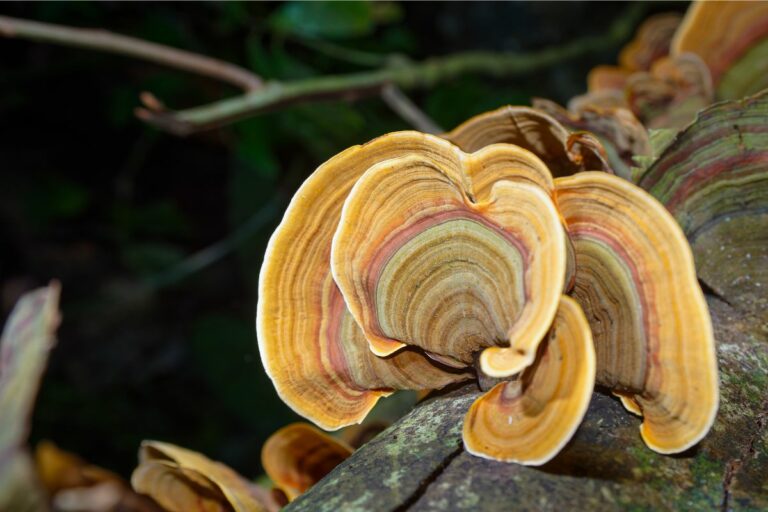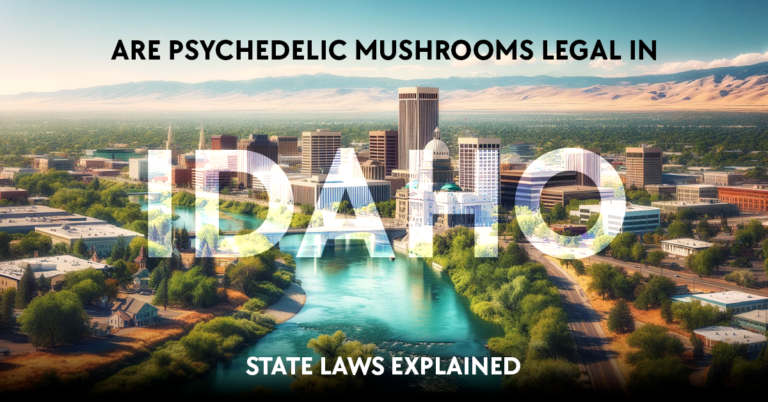Psychedelic mushrooms, which contain the psychoactive substance psilocybin, occupy a complex legal status in the United States. If you’re curious about whether these mushrooms are legal in Nevada, it’s important to understand that, as of my last update, they are classified as a Schedule I controlled substance under both federal and state law. This classification means that they are not legally recognized for medicinal use and are considered to have a high potential for abuse.

In Nevada, this legal stance means that the cultivation, possession, sale, or distribution of psilocybin mushrooms is illegal and can result in severe legal penalties. While there is a growing conversation around the potential therapeutic benefits of psychedelics and some jurisdictions in the U.S. have started to change their stance on these substances, Nevada currently maintains strict regulations against them. If you reside in Nevada or are visiting, staying informed about local laws is crucial to avoid legal issues related to psychedelic mushrooms.
Legality of Psychedelic Mushrooms in Nevada
Table of Contents
https://www.youtube.com/watch?v=5q8gwtxcGr4&embed=true
In Nevada, the legal status of psilocybin, the active compound in magic mushrooms, is a complex issue influenced by both state and federal laws.
Current State Laws and Penalties
Under Nevada law, psilocybin is classified as a Schedule I controlled substance. This means that the manufacture, possession, or sale of magic mushrooms is illegal and considered a Category B felony. If you’re caught with these substances, you could face severe penalties including prison time and hefty fines. Law enforcement and public safety agencies take these offenses seriously.
Senate Bill 242 and Legal Efforts
The Nevada Legislature has seen efforts to change the harsh legal stance on psilocybin. Senate Bill 242, introduced by state Sens. Rochelle Nguyen and others, aimed to decriminalize possession of small amounts of certain controlled substances, including psilocybin. Although this bill does not fully legalize these substances, it represents a step towards reducing the penalties associated with them. However, as of the current date, you should be aware that the bill has not been enacted, and possession remains illegal.
Federal Law vs. State Decriminalization
Despite any efforts by state lawmakers to decriminalize psilocybin, it is important for you to remember that it remains illegal under federal law. Psilocybin is a Schedule I controlled substance at the federal level, which can lead to conflicts between state and federal legislation. This dichotomy requires careful consideration when discussing decriminalization within Nevada.
Comparative Legal Frameworks
When looking at other states, Oregon, Colorado, and California have taken steps to decriminalize or legalize psilocybin to varying degrees. These states have set precedents that could influence future legislative decisions within the Nevada Senate and Assembly. However, as of now, if you’re in Nevada, you are subject to the state’s stringent laws against psilocybin mushrooms, emphasizing the importance of being aware of local laws over those of other states.
Medical Use and Research

As you explore the frontier of psychedelic mushrooms in Nevada, you’ll discover a landscape marked by promising medical applications and robust research efforts. Let’s navigate the specific realms of psilocybin’s potential in mental health treatment, current studies, therapeutic uses, and the legal advocacy driving change.
Psilocybin for Mental Health
Research indicates that psilocybin, the psychoactive compound in psychedelic mushrooms, may offer significant benefits for mental health conditions such as depression, anxiety, and PTSD (post-traumatic stress disorder). This has led to a mental health crisis response where psilocybin is being considered as a therapeutic substance.
Current Research Initiatives
Study teams and researchers are actively engaging in clinical trials to gather clinical evidence of psilocybin’s efficacy. Authorized research facilities and initiatives, backed by the U.S. Food and Drug Administration (FDA), are examining psilocybin’s impact under controlled conditions to establish its safety and therapeutic potential. For instance, a study on mild red-green color vision deficiency showed intriguing results after psilocybin use.
Therapeutic Applications
Psilocybin is being considered for therapy in various forms, aimed at treating a range of mental health issues. Medical and medicinal use of psilocybin mushrooms is gaining traction due to its potential to serve as an alternative in chronic pain management and to provide relief in cases where conventional treatments have failed.
Legalization Movements and Medical Advocacy
In Nevada, the conversation around legalization of psilocybin for medical use is evolving, thanks to organizations like the Nevada Coalition for Psychedelic Medicines. Advocacy efforts focus on promoting the medical benefits of psychedelics and seeking legal pathways to allow for their use in a clinical setting, as highlighted in the employment law considerations for psilocybin users.
Cultural and Social Considerations

In Nevada, the cultural and social landscape surrounding psychedelic substances such as psilocybin mushrooms is evolving. Your awareness of historical uses, shifting public sentiment, and impacts on health matters like addiction is crucial for an informed perspective.
Historical Use by Indigenous Communities
Indigenous communities have a long-standing relationship with psilocybin mushrooms, employing them in sacred rituals for centuries. These practices have shaped the spiritual and social fabric of numerous cultures, recognizing these substances for their potential to foster profound experiences.
Shift in Public Perception
As you examine the current standing of psychedelics, there’s a noticeable change in public perception toward these substances. Once associated with countercultural movements, psilocybin mushrooms are now being explored for their therapeutic benefits. Several studies have highlighted their ability to provide life-changing treatments for some mental health conditions, nudging public opinion toward a more accepting stance on their use.
Impact on Addiction and Alcoholism
Reflect on the implications of psilocybin mushrooms as possible life-saving treatments. For individuals grappling with addiction and alcoholism, psychedelic-assisted therapy shows promise. Research indicates that, under controlled conditions, psilocybin can offer significant benefits, helping users to confront and potentially overcome their struggles with these difficult-to-treat conditions.
Regulations and Future Directions

In Nevada, the legal landscape surrounding psychedelic mushrooms is evolving, with recent policy changes and ongoing research impacting both possession and future decriminalization. As you navigate this complex field, keep in mind the current status of psilocybin, advancements in policy development, and the critical role of research in shaping the legalities of psychedelics.
Possession and Cultivation
Possession and cultivation of psychedelics such as psilocybin mushrooms, LSD, and MDMA are currently illegal for most residents in Nevada. It is important for you to understand that anyone over the age of 18 found possessing these substances can face serious legal consequences. Despite this, there could be shifts in regulations as societal attitudes towards psychedelics alter.
Policy Development by Stakeholders
Nevada’s policymakers, including stakeholders like the Psychedelic Medicines Working Group and neuroscience experts, are assessing the potential health benefits of psychedelics. Fabian Donate, a notable figure in this domain, is actively participating in discussions for new policies that could redefine the legal standing of these substances while emphasizing public safety.
Funding for Psychedelic Research
Funding for psychedelic research is crucial as it allows scientists and psychiatrists to study psychedelics’ therapeutic effects, like on schizophrenia. In Nevada, research facilities such as UNLV are eyeing this area for development, relying on support from both public and private entities to explore the efficacy and safety of psychedelic treatments.
Potential for Future Decriminalization
Looking towards the future, there’s a possibility for decriminalization of psychedelics in Nevada. This would significantly change the current stance on drugs like MDMA and psychedelic mushrooms. Decriminalize efforts are influenced by research outcomes and societal views on the potential health benefits of psychedelics.
Health and Safety Regulations
The Department of Health and Human Services and other regulators play a vital role in establishing health and safety regulations. As insights from ongoing research emerge, these bodies are responsible for creating guidelines that ensure any changes, such as those relating to the potential therapeutic use of ketamine, prioritize users’ health and safety.
Remember, while the legal environment is in flux, staying informed about the latest developments will help you understand the direction in which Nevada’s psychedelic substance regulations are heading.
Psychedelics and Veteran Affairs
Exploring the dynamics between psychedelics and veteran affairs reveals a complex interplay between legal advocacy, potential therapeutic benefits, and the ongoing struggle to navigate policies that affect veterans suffering from PTSD and trauma. This section delves into current treatments, the push for legal changes, and the controversial use of psychedelics in therapy for veterans.
PTSD Treatments for Veterans
Your understanding of PTSD treatments for veterans might expand when you learn that traditional methods often don’t address the full spectrum of trauma-related symptoms. Recent investigations points toward potential life-saving treatments involving psychedelic-assisted therapies. Compounds such as psilocybin, found in psychedelic mushrooms, are becoming a significant part of the conversation regarding alternative treatments for trauma in veterans.
Legal Advocacy and Veteran Support
At the legal forefront, figures like Assemblywoman Rochelle Nguyen are championing veterans’ causes. The introduction of Senate Bill 242 aims to revolutionize how you understand the medical use of psychedelic substances, by potentially leading to the legalization of psychedelic mushrooms. This change could signify a monumental shift in your perception of accessible mental health support for veterans.
Using Psychedelics in Veteran Therapy
When considering therapy with psychedelic mushrooms, your awareness of the veteran community’s needs is crucial. Legalization efforts in places like Nevada are opening doors for you to view psychedelics not just as recreational substances, but as therapeutic tools. If veterans are given legal access to psychedelics under therapeutic settings, this could transform the standard care for trauma and PTSD, offering a new era of life-saving treatments.
Local Governments and Psychedelics
Your understanding of psychedelic substance regulation is complex, due to varied approaches taken by local governments. Laws surrounding psychedelics such as psilocybin mushrooms, LSD, and marijuana can differ significantly within state boundaries.
City of Henderson’s Stance
In Henderson, Nevada, you’ll find that psychedelics like psilocybin mushrooms are considered Schedule I substances. This means they’re classified similarly to LSD and marijuana before it was decriminalized, and are seen as having no accepted medical use with a high potential for abuse. Being caught with these substances could result in a Category B felony charge, with severe penalties.
Oakland’s Decriminalization Approach
Conversely, Oakland, California, has adopted a more lenient stance. In 2019, the city council passed a resolution that decriminalized natural psychedelics, including psilocybin mushrooms, peyote, and ayahuasca. However, note that although these substances are decriminalized, they are not legal, meaning sale and distribution could still lead to legal repercussions.
Psychedelics Policy in Las Vegas
Las Vegas, a city known for its liberal attitudes toward entertainment and vice, maintains a strict position on psychedelics. Regardless of the more permissive laws on marijuana, psychedelics such as LSD and psilocybin mushrooms are not decriminalized, aligning with Nevada state law deeming them as Schedule I substances. In this vibrant city, you’re expected to adhere strictly to the state’s legal framework concerning psychedelic substances.
Environmental Impact and Sustainability
When you consider the legality of psychedelic mushrooms in Nevada, it’s essential to understand the environmental impact and sustainability of their production. Here’s how sustainable practices can be integrated into cultivation and what environmental considerations are crucial for psilocybin production.
Sustainable Cultivation Practices
To produce psychedelic mushrooms like psilocybin in an environmentally friendly manner, sustainable cultivation practices are vital. This involves the use of renewable resources and energy-efficient methods that minimize waste. By choosing substrates that are byproducts of other industries, you can convert waste into a valuable resource, thus reducing the ecological footprint of cultivation. Furthermore, implementing a closed-loop water system can conserve water and prevent the contamination of local waterways.
Environmental Considerations of Psilocybin Production
The production of psilocybin must not only focus on yield but also on its environmental considerations. It starts with the selection of cultivation sites that do not disrupt local ecosystems or biodiversity. For example, indoor cultivation facilities should incorporate air filtration systems to prevent spore dispersal that could affect the surrounding environment. Energy consumption is another critical factor; utilizing renewable energy sources for these operations can significantly reduce the carbon footprint associated with psychedelic mushroom production.
Frequently Asked Questions
Before diving into specifics, it’s essential to understand that laws around psilocybin mushrooms are defined and enforced at the state level, and any possession or distribution could lead to legal repercussions.
What is the legal status of psilocybin mushrooms in the state of Nevada?
In Nevada, psilocybin mushrooms are classified as a Schedule I controlled substance. This means they are illegal to possess, consume, or distribute without authorization.
Can one possess or consume psilocybin mushrooms without facing criminal charges in Nevada?
No, you cannot legally possess or consume psilocybin mushrooms in Nevada as they are prohibited under state law. Doing so may result in criminal charges.
Are there any ongoing legislative changes concerning psychedelics in Nevada?
As of this date, there are no public legislative changes or proposals aimed at altering the legal status of psychedelic mushrooms in Nevada.
Is it legal to grow psilocybin mushrooms for personal use in Nevada?
Growing psilocybin mushrooms for any purpose, including personal use, is illegal in Nevada and can lead to significant legal consequences.
What are the potential legal consequences of distributing psychedelic mushrooms in Nevada?
Distributing psilocybin mushrooms in Nevada could result in serious charges, including hefty fines and imprisonment, due to their Schedule I classification.
Does Nevada have any medical programs or research initiatives involving psilocybin?
Currently, Nevada does not have any state-sanctioned medical programs or research initiatives that involve the use of psilocybin mushrooms.







